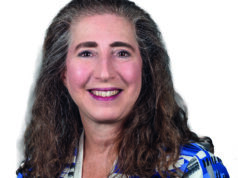
Outgoing Midwestern Vascular Surgical Society (MVSS) President Jeffrey Jim, MD, used his recent presidential address to call upon vascular surgeons to spread the word far and wide—from Main Street to hospital C-suites—of what marks out vascular surgery as the truly “special” specialty.
Jim struck on familiar themes during the talk at the 2023 MVSS annual meeting in Minneapolis, Minnesota (Sept. 7–9): the uniqueness of vascular surgery as a comprehensive provider of vascular care; the roots of the “vascular firefighter” analogy; and the value of the specialty to a hospital system. He prefaced with a slight apologia that the content of his talk might lean pollyannaish, but his core purpose was unwavering: that “vascular surgery is the best”—and here is why…
What do patients do when they need medical help? “Call a medical doctor,” Jim expanded. “When a medical doctor needs help, who do they call? They call a surgeon. When a surgeon needs help, who do they call? A vascular surgeon.” He delved into the necessity of vascular surgical presence in the context of case mix indexes so complicated, they cannot function without vascular being called in. Vascular surgery is the best, Jim told his audience—“and how can we keep it that way?”
So how should vascular surgeons go about doing so?
“We know [all this],” Jim continued, “but we need to spread the word. For the longest time we have been hiding out—walking in, walking out. We need to own vascular disease in the community.”
If that means heading out into the community to give a rudimentary talk about what vascular disease is, “you need to do it,” he implored. If the setting is a dinner with other healthcare providers, ditto, Jim said. “We need to let them know. We are the ones with the complete toolbox. We need to collaborate and explain what we do and how we can help them.”
Top of mind, too, should be letting leadership figures and hospital administrators in on the vascular story, “because I think we are very undervalued,” he commented. “People barely know what we do.”
It can play out along tired conversation lines, Jim outlined: “Are you in the cath lab? Are you doing open? Are you doing endo?
“We are much more than that,” he emphasized. “We are there to make sure we promote a safe environment, and we let them go ahead and do other service lines. We let them do other cases that otherwise they are not going to be able to do, because we are there to back them up. You need to take ownership and make sure people in your hospital system know that.”
Vascular surgeons also need to become the leaders of quality in vascular care, Jim said. “We may be small in number, but we are really knowledgeable. We happen to have very diverse experience of what we do. We need to look at patient outcomes and experience.”
Cost-effectiveness, too, requires vascular leadership, he pointed out—and independent of specialty. “We can’t just sit there and have arguments with people that we are better because we are vascular surgeons, or you’re not as good because you’re not. We need to talk about who is actually giving better cost-effective care.”
Jim also called out the special nature of vascular surgery in terms of how it plows an innovation trail. In that particular vein, he highlighted the Midwest region of the U.S. as particularly fertile ground.
“I think there is something unique about the healthcare system in the Midwest,” he said. “We have gigantic hospitals. Not that they don’t have big hospitals at UCLA, Stanford, LSU, but we have really big hospitals everywhere. We take care of a lot of surrounding areas, rural areas, and, because of that, I think we have the ability to get high, significant clinical volumes that you might not always get in the big populated city.”
Ergo, the opportunities to advance vascular care by innovation abound.
In his own case, Jim has become known for his special interest in carotid disease and his work with Silk Road to train vascular surgeons in the use of transcarotid revascularization (TCAR). “One of the things I am really proud of is when I go teach the course, I don’t care whether you do the procedure,” he said. “But if you are, I want to make sure you do it right— that’s what vascular surgeons do.”












